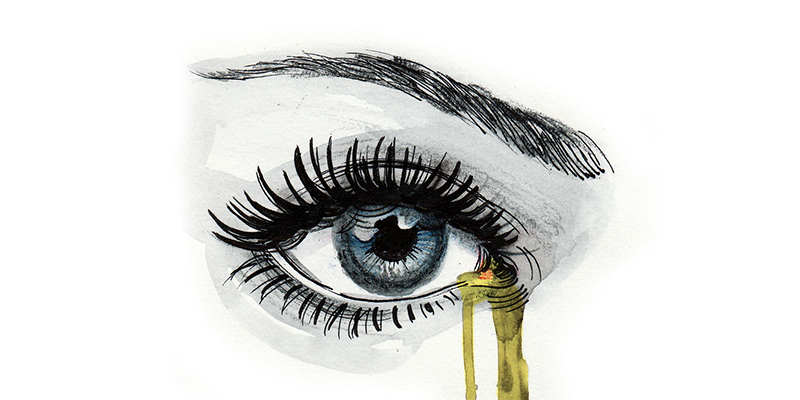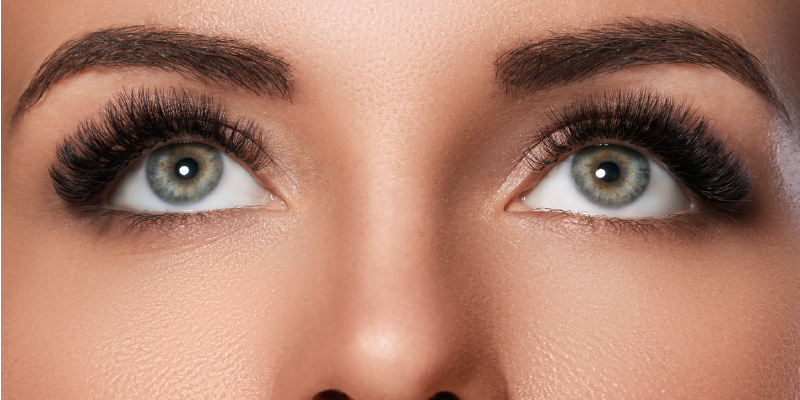Cleaning our teeth is a normal part of our morning and evening routines, and this habit is widely recognized as an important part of our overall health. So why can’t the same be said for our eye hygiene? If you’ve ever woken up feeling like you have ‘sand’ in your eyes, it could mean that your eyes need some help. Most Americans don’t regularly cleanse their eyes, other than using makeup remover if they wear makeup. But the truth is that taking great care of your eyes is just as important as having great dental hygiene. Here’s why.
Bacteria and Mites

Bacteria and mites are organisms that are always going to be present on your skin, eyelids, and eyelashes no matter what you do. In fact, some of these organisms are a necessary part of our skin’s complex microbiome, which consists of a great variety of species of microorganisms that are, for the most part, harmless or even beneficial [1]. However, if the balance of the skin’s microbiome is disturbed by the infiltration of bad bacteria, or even otherwise harmless bacteria or mites in large numbers, skin and eye diseases can result.
There are two primary species of Demodex that live on the skin and eyelashes. In most cases, these mites go unnoticed and are harmless. But when found in larger numbers than usual, Demodex has been linked with symptoms of rosacea, a common inflammatory skin and sometimes ocular condition, and blepharitis, an inflammatory eye condition [2, 3].
So when you don’t regularly cleanse your eyes, too much bad bacteria or even otherwise harmless good bacteria and mites can build up on the surface of your eyelids and eyelashes and cause common eye problems like dryness, redness, discomfort, and itchiness. On the other hand, cleansing with a product that contains 4-Terpineol, the most effective component in tea tree oil for eradicating Demodex mites, can help to minimize the number of Demodex living on your eyelids and lashes, as well as help to maintain the proper balance of other microorganisms in the skin’s microbiome.
Allergens

If you’re someone who tends to get red, itchy eyes due to allergies, it’s especially important that you regularly wash your eyelids properly. Pollen, pet dander, dust, mold, and mites can all contribute to eye allergy symptoms, so you want to make sure that you remove as many of these particles as possible throughout the day and at night before going to bed. Please keep in mind that Cliradex should not be applied to your eyes.
For severe allergy sufferers, try an on-the-go product like Cliradex Towelettes to keep with you wherever you go. That way, if you start to develop allergy symptoms, you can gently and effectively cleanse your eyelids and eyelashes to help remove the source of the problem.
Contact Lenses and Makeup

If you wear contact lenses or makeup, think of the number of times you put your fingers, or even your makeup brushes, in or near your eyes. Every time you do so, you could potentially expose your eyes to all kinds of dirt, pollutants, and bacteria that could result in red, dry, and itchy eyes. So not only is it crucial that you wash your hands and makeup brushes before putting in contact lenses or applying makeup, but it’s equally important to make sure you regularly cleanse your eyelids to remove any potentially harmful particles that could have gotten in your eyes throughout the day.
The Bottom Line
Your eyes are important, and keeping up with regular eye hygiene is one of the best things you can do to help keep them healthy, clear, and clean. Just like you probably wouldn’t want to skip a day of brushing your teeth, you shouldn’t go days without ever cleaning your eyes, especially if you struggle with an eye condition like dry eye syndrome, blepharitis, or eye allergies. Do your eyes a favor and give them an extra minute or two of your morning and evening routine to help keep them (and you!) looking and feeling their best.




